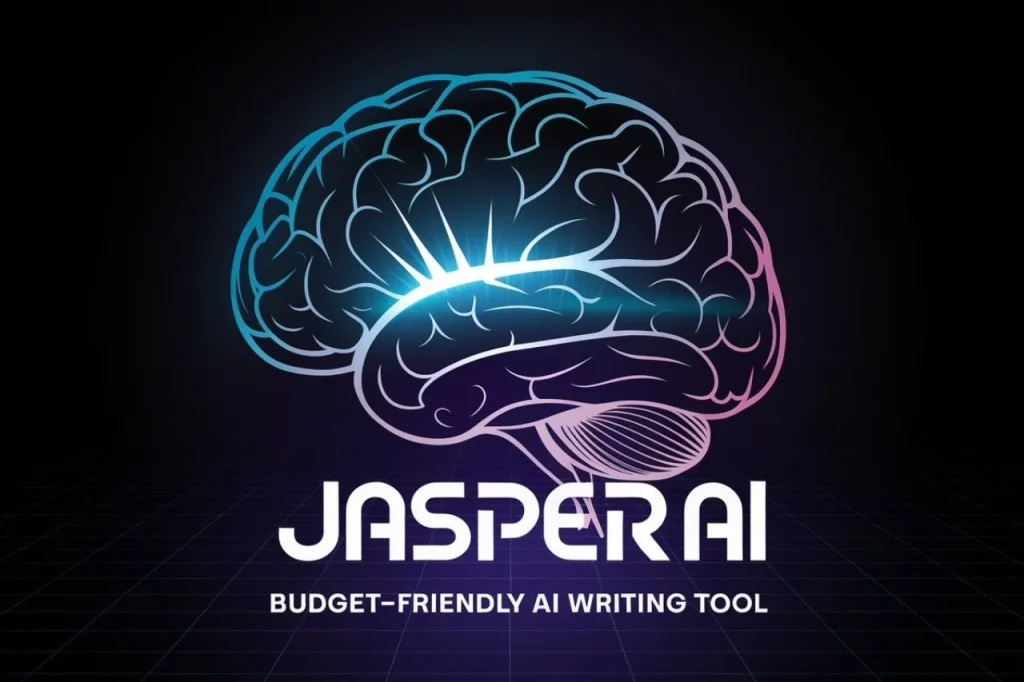ChatGPT Unblocked for School: Safe & Easy Access in 2025
Discover responsible ways to access ChatGPT at school. A comprehensive guide for students, teachers, and administrators to use AI for education.
🤖 Official ChatGPT Website📑 Table of Contents
What is ChatGPT?
ChatGPT is an advanced artificial intelligence language model developed by OpenAI that can understand and generate human-like text. It’s designed to assist with a wide range of tasks including answering questions, writing essays, solving problems, coding, and creative writing. Since its launch in November 2022, ChatGPT has become one of the most popular AI tools worldwide, with millions of users across various fields.
For students and educators, ChatGPT offers powerful capabilities that can enhance learning experiences. It can serve as a personalized tutor, research assistant, writing coach, and brainstorming partner. However, its potential for misuse has led many educational institutions to restrict access, creating the need for safe and responsible ways to unblock ChatGPT for school use.
What Does “ChatGPT Unblocked for School” Mean?
The phrase “ChatGPT unblocked for school” refers to methods and approaches that allow students and educators to access ChatGPT on school networks where it might otherwise be restricted. Schools typically implement content filtering systems that block access to certain websites and online services, including AI tools like ChatGPT, for various reasons we’ll explore in the next section.
When we talk about unblocking ChatGPT, we’re referring to legitimate, ethical approaches that respect school policies while enabling productive use of AI technology for educational purposes. This doesn’t mean circumventing security measures without permission, but rather finding approved ways to integrate AI tools into the learning environment.
Why Schools Restrict ChatGPT Access
Academic Integrity Concerns
Schools worry that students might use ChatGPT to complete assignments without proper learning, potentially undermining the educational process and assessment validity.
Data Privacy and Security
Educational institutions have strict data protection obligations, and AI tools may raise concerns about student information privacy and compliance with regulations like FERPA.
Network Management
Schools implement content filtering to manage bandwidth, prevent distractions, and maintain a focused learning environment free from potentially problematic content.
Potential for Misinformation
While generally accurate, AI models can sometimes generate incorrect or misleading information, which educators may want to prevent students from encountering unsupervised.
Why Students Want ChatGPT Unblocked
📚 Homework and Research Support
ChatGPT can help students understand complex concepts, brainstorm ideas, and find relevant resources for their assignments. It serves as a 24/7 learning assistant that can explain topics in multiple ways until the student grasps the material.
✍️ Creative Writing and Language Learning
For language arts and foreign language classes, ChatGPT can help with writing structure, grammar correction, vocabulary building, and creative storytelling exercises that enhance language skills.
🔬 AI Tutoring for STEM Subjects
In science, technology, engineering, and mathematics, ChatGPT can walk students through problem-solving steps, provide practice questions, and offer alternative explanations for challenging concepts.
How to Use ChatGPT Unblocked at School (Safe Methods)
1. Using a VPN or Proxy (Ethical Use Only)
Virtual Private Networks (VPNs) can bypass school network restrictions by routing your connection through a different server. However, it’s important to note that many schools prohibit VPN usage in their acceptable use policies. If considering this approach:
- Only use reputable VPN services with strong privacy protections
- Understand that this may violate school policies
- Consider discussing educational needs with school administration first
- Use only for legitimate educational purposes
2. ChatGPT Mirror or Alternative Access Sites
Some websites offer access to ChatGPT through alternative domains or mirror sites that might not be blocked by school filters. These can include:
- Third-party interfaces that connect to the ChatGPT API
- Educational platforms with integrated AI features
- Browser-based tools that provide similar functionality
Always verify the legitimacy and security of these sites before use.
3. ChatGPT Mobile Apps and Browser Extensions
If school Wi-Fi blocks ChatGPT, students might access it through:
- Official ChatGPT mobile app using cellular data
- Browser extensions that provide AI assistance
- Progressive web apps that work offline or with limited connectivity
4. ChatGPT Alternatives that Work at School
Many alternative AI tools might not be blocked by school filters and can provide similar assistance:
- Google Bard (now Gemini) – Often accessible through Google ecosystem
- Microsoft Bing Chat – Integrated with search functionality
- Educational AI platforms specifically designed for schools
Safe AI Tools Similar to ChatGPT for School Use
| AI Tool | Best For | Free Tier | School Accessibility |
|---|---|---|---|
| Claude AI | Reasoning & Long Documents | ✅ Yes | Often Accessible |
| Google Gemini | Research & Integration | ✅ Yes | Usually Accessible |
| Poe.com | Multiple AI Models | ✅ Limited | Sometimes Blocked |
| Perplexity AI | Research with Citations | ✅ Yes | Often Accessible |
| Microsoft Copilot | Productivity & Coding | ✅ Yes | Usually Accessible |
How Schools Can Responsibly Use ChatGPT
For Lesson Planning and Creative Projects
Teachers can use ChatGPT to generate lesson ideas, create engaging activities, develop discussion questions, and design creative projects that align with curriculum standards.
AI-Assisted Student Learning
Implement structured activities where students use ChatGPT as a research tool, writing assistant, or problem-solving partner under teacher guidance and with clear learning objectives.
Ethical Use Guidelines for Classrooms
Develop clear policies about when and how AI tools can be used, including citation requirements, appropriate use cases, and consequences for misuse.
Critical Thinking Development
Teach students to critically evaluate AI-generated content, identify potential biases or inaccuracies, and use AI as a starting point rather than a final answer.
Technical Ways to Whitelist ChatGPT for Educational Networks
For school IT administrators and educators advocating for ChatGPT access, here are technical approaches to consider:
Firewall Rules and Domain Whitelisting
IT departments can create exceptions in content filtering systems specifically for educational use of ChatGPT, allowing access while maintaining other protections.
Educational Licensing Options
OpenAI offers educational programs and APIs that schools can implement with enhanced privacy and security features designed for educational environments.
Managed Access Solutions
Implement systems that allow teacher-monitored access during specific class periods or for approved educational activities only.
Schools can also consider implementing AI literacy programs that teach students how to use these tools responsibly while addressing concerns about academic integrity.
Benefits of ChatGPT Access for Students
🚀 Increases Creativity
- Idea Generation: Helps brainstorm project ideas and creative solutions
- Writing Assistance: Supports developing writing skills through examples and feedback
- Problem-Solving: Offers multiple approaches to complex problems
- Personalized Learning: Adapts explanations to individual understanding levels
📈 Improves Productivity
- Research Efficiency: Quickly summarizes information and finds relevant sources
- Time Management: Helps organize thoughts and plan projects effectively
- Skill Development: Provides practice opportunities across various subjects
- 24/7 Availability: Accessible outside classroom hours for continued learning
🎓 Enhances Understanding
- Concept Clarification: Explains difficult topics in multiple ways
- Real-World Applications: Connects academic concepts to practical situations
- Critical Thinking: Encourages questioning and evaluation of information
- Personalized Pace: Allows students to learn at their own speed
🌍 Prepares for Future
- Digital Literacy: Develops skills needed for AI-augmented workplaces
- Technology Fluency: Builds comfort with advanced tools and systems
- Adaptability: Teaches how to leverage new technologies effectively
- Career Readiness: Introduces AI skills valuable across industries
Risks and Safety Measures When Unblocking ChatGPT
⚠️ Potential Risks
- Academic Dishonesty: Potential for unauthorized assistance on assignments
- Data Privacy: Concerns about student information handling
- Misinformation: Possibility of incorrect or biased information
- Over-reliance: Risk of diminished critical thinking skills
- Equity Issues: Potential advantages for students with outside access
🛡️ Safety Measures
- Clear Policies: Establish rules for appropriate AI use
- Supervision: Monitor student interactions with AI tools
- Education: Teach critical evaluation of AI-generated content
- Citation Requirements: Mandate disclosure of AI assistance
- Alternative Assessments: Design assignments that minimize AI misuse potential
👉 Explore: Best AI Tools for Students
Internal Resources
Best AI Tools for Students
Discover the top AI applications that can help with studying, research, and academic projects while maintaining educational integrity.
Read More →Free ChatGPT Alternatives for Schools
Explore budget-friendly AI options that provide similar functionality to ChatGPT while addressing educational institution concerns.
Read More →ChatGPT Study Prompts for Classrooms
Learn effective prompting techniques and ready-to-use templates that maximize ChatGPT’s educational value across subjects.
Read More →FAQs About ChatGPT Unblocked for School
Yes, using ChatGPT is legal, but school policies may restrict access on their networks. The legality concerns how it’s used – for learning assistance it’s generally acceptable, but using it to complete assignments without disclosure may violate academic integrity policies. Always follow your school’s specific guidelines regarding AI tool usage.
School Chromebooks typically have strict management controls. Your options include: requesting educational access through your teacher or IT department, using approved educational platforms with AI features, accessing ChatGPT through mobile data on a personal device, or exploring school-approved alternative AI tools. Avoid attempting to bypass security measures without permission.
Absolutely! Teachers can effectively use ChatGPT to create lesson outlines, generate discussion questions, develop creative activities, differentiate instruction for various learning levels, and create assessment materials. Many educators find it valuable for saving time on administrative tasks while enhancing instructional quality.
Using VPNs carries several risks including: potential violation of school acceptable use policies, security concerns with free VPN services that may collect data, and the possibility of accessing unsecured networks. If considering a VPN, use reputable services, understand your school’s policies, and prioritize educational use over bypassing restrictions.
Excellent alternatives include: Claude AI for its strong reasoning capabilities, Google Gemini for research integration, Microsoft Copilot for productivity tasks, Perplexity AI for source-cited information, and specialized educational AI platforms designed specifically for classroom environments with built-in safety features.
Conclusion: Embracing AI Responsibly in Education
ChatGPT and similar AI tools represent a transformative opportunity for education when approached with careful consideration and responsible implementation. Rather than viewing these technologies as threats to academic integrity, educators and administrators can develop frameworks that harness their potential while addressing legitimate concerns.
The key to successful integration of ChatGPT unblocked for school environments lies in balanced approaches that combine access with education about ethical use. By teaching students how to leverage AI as a learning tool rather than a shortcut, we prepare them for a future where human-AI collaboration will be commonplace across professions.
Schools that develop clear policies, provide guidance on appropriate use, and focus on AI literacy are positioning their students for success in an increasingly AI-augmented world. The goal shouldn’t be to block access entirely, but to create environments where students learn to use these powerful tools responsibly, critically, and effectively.
Ready to Explore Educational AI Responsibly?
Join the conversation about AI in education and discover how to leverage these tools for enhanced learning.
🎓 Educational Resources 🤖 Official ChatGPT


